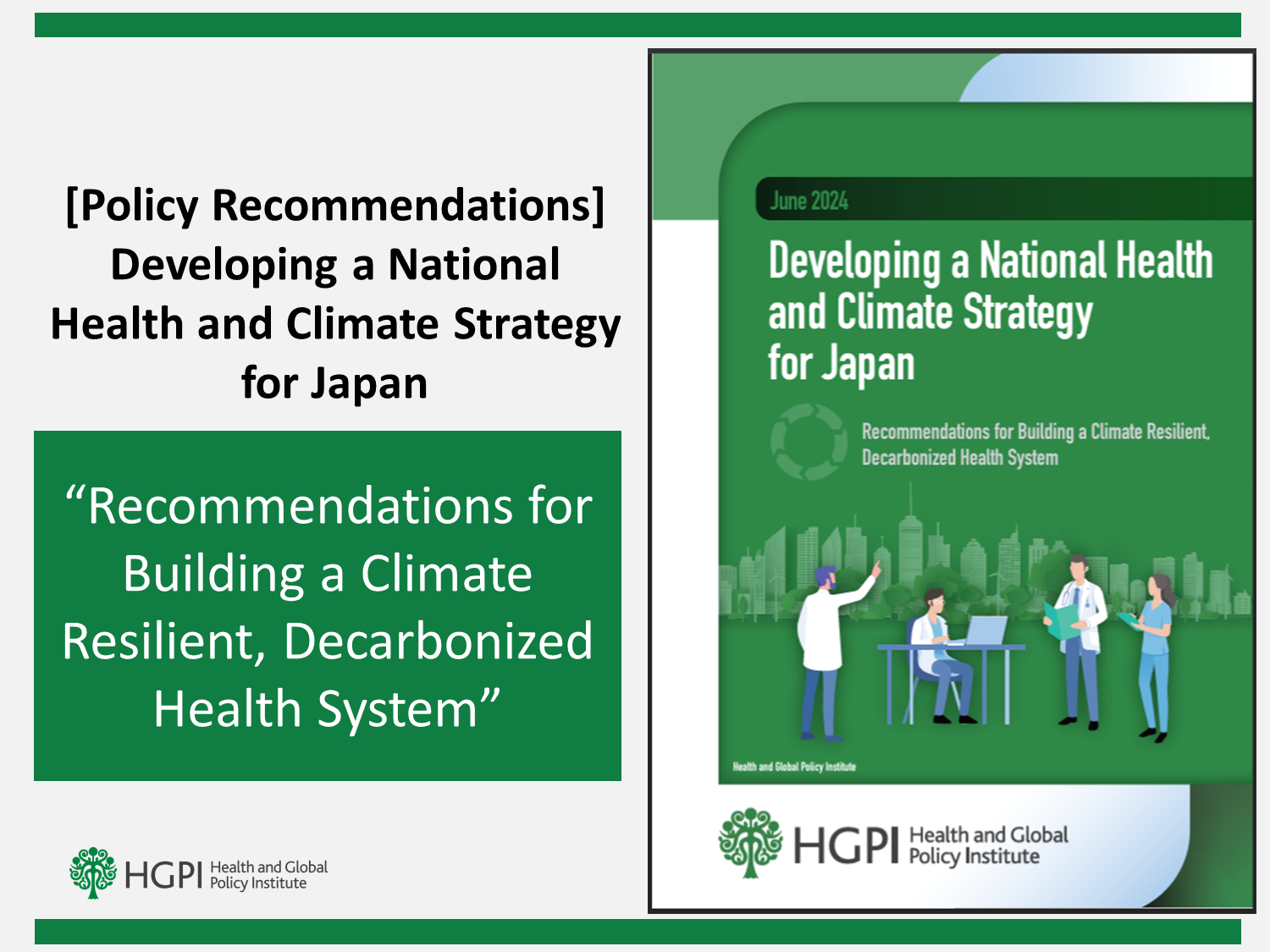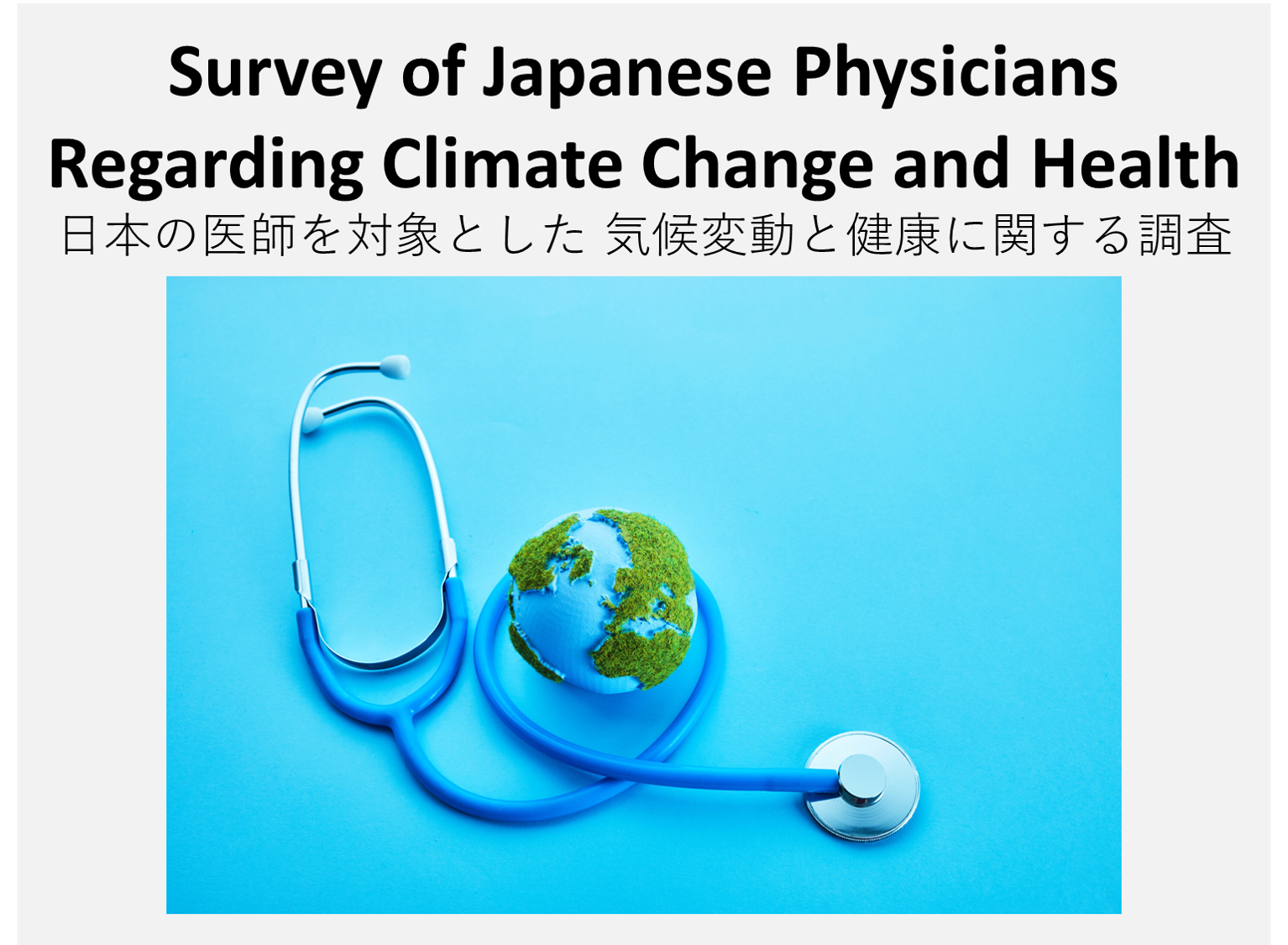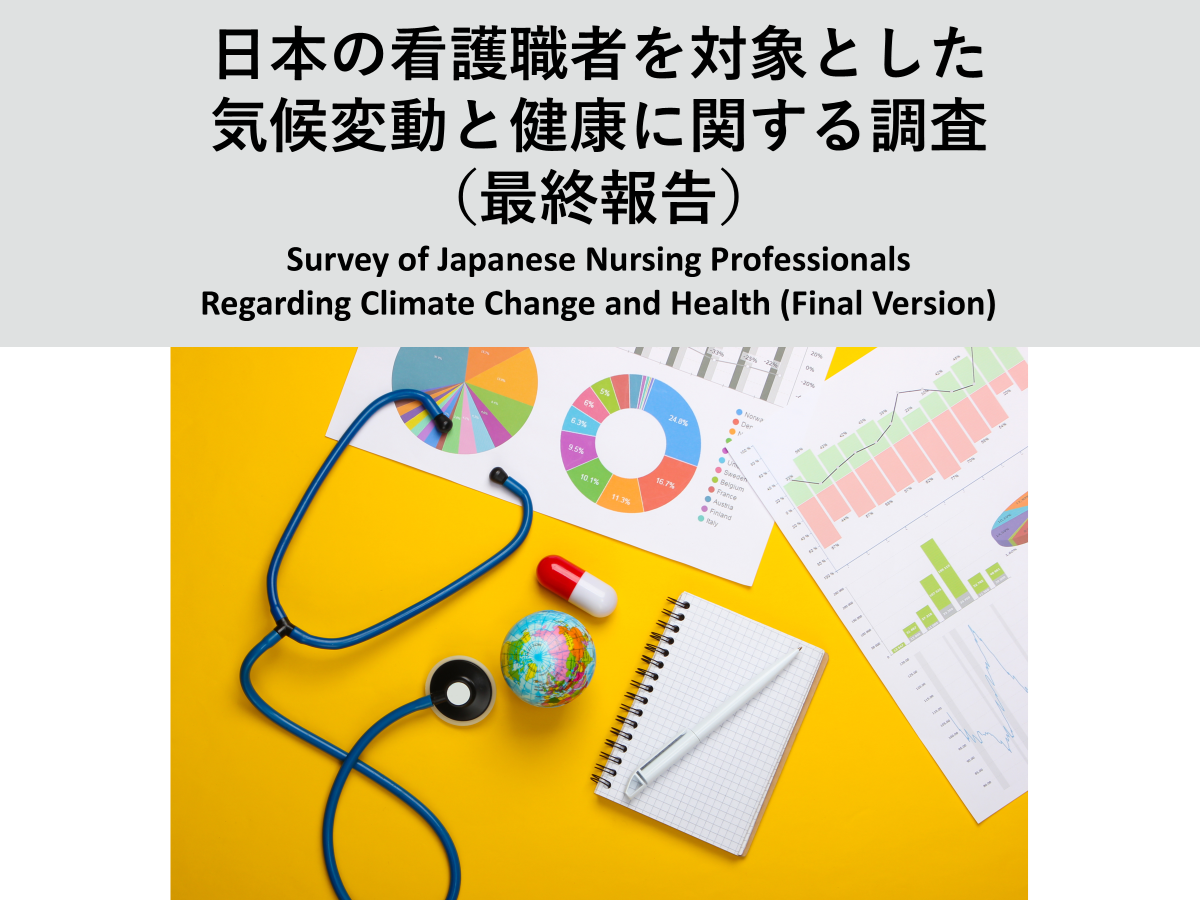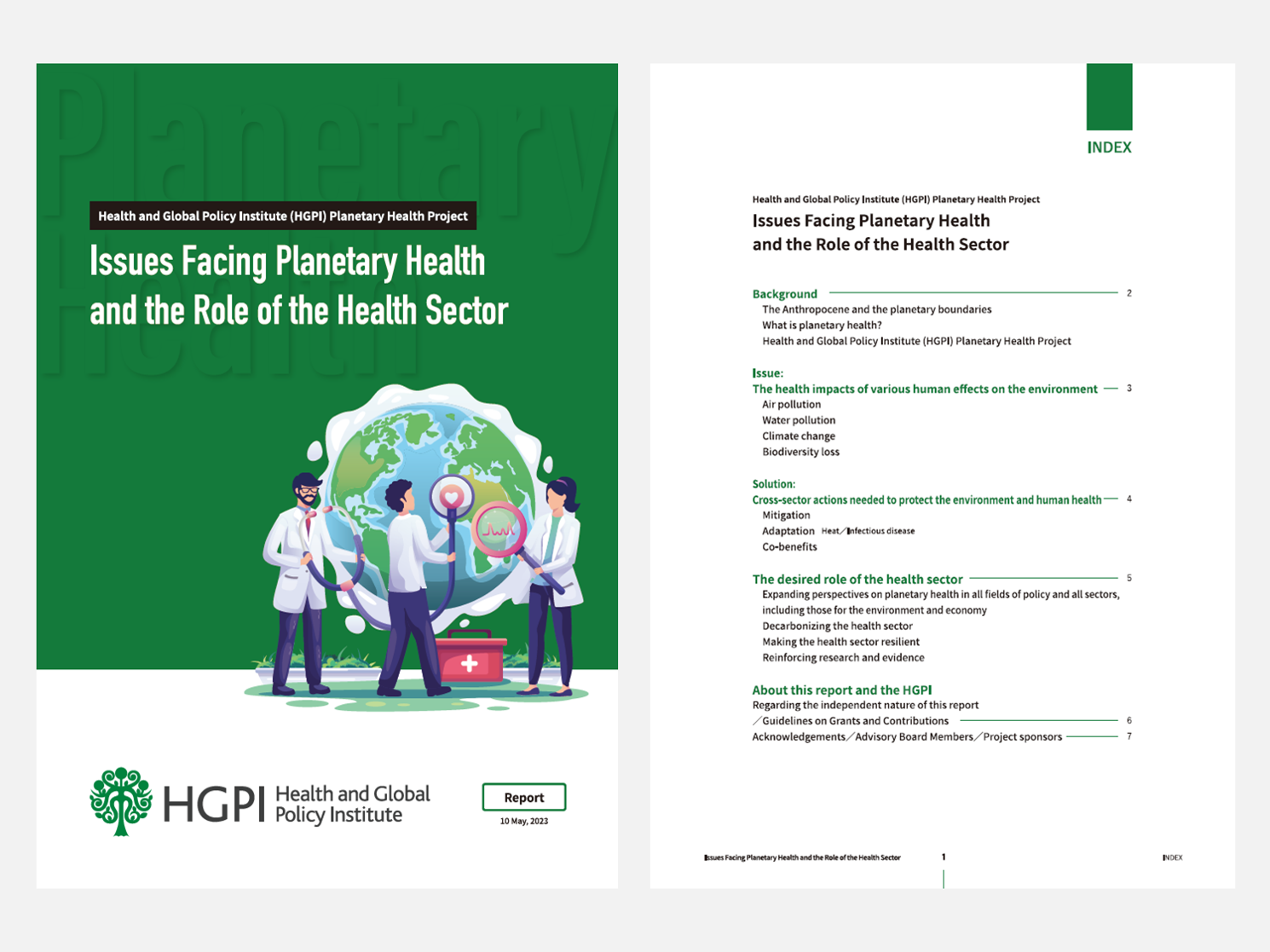[Policy Recommendation] Preparing for “Disaster-Level Heat” in the 2025 Basic Policy on Economic and Fiscal Management and Reform (June 9, 2025)
date : 6/9/2025
Tags: Planetary Health
![[Policy Recommendation] Preparing for “Disaster-Level Heat” in the 2025 Basic Policy on Economic and Fiscal Management and Reform (June 9, 2025)](https://hgpi.org/en/wp-content/uploads/sites/2/f4ef367d83870bff859fd7f5f8fd9363.png)
The Planetary Health Project at Health and Global Policy Institute (HGPI) has released a policy recommendation titled “Institutional Design for Responding to Health Crises in the Era of Climate Change — Integrating Preparedness for Both Upstream and Downstream Impacts of ‘Disaster-Level Heat’ into the Basic Policy on Economic and Fiscal Management and Reform (2025)”, also known as the Honebuto Policy.
This proposal redefines the escalating health risks posed by increasingly frequent and severe extreme weather events—especially heatwaves and heat-related illnesses described as “disaster-level”—as structural national issues that require coordinated action across healthcare, disaster management, energy, and urban policy. It calls for the institutional strengthening of policy responses to the health impacts of climate change as a central focus in the upcoming 2025 Honebuto Policy.
In 2024, a record-high 97,578 cases of emergency transport due to heatstroke and 2,033 deaths were reported across Japan. Some studies suggest that actual heat-related deaths may be up to seven times higher than reported statistics. As such “invisible health risks” continue to grow—particularly among the elderly—the healthcare delivery system faces unsustainable stress.
This proposal highlights the urgent need to realign national policy through the lens of Planetary Health from the following three perspectives:
■ Key Points
1. Building a Cross-Sectoral Policy Framework Centered on Planetary Health
- Clearly articulate the need to integrate environmental, health, and economic policies.
- Strengthen links among existing policy frameworks such as the SDGs, the Basic Environment Plan, and healthcare strategies.
- Integrate health policy with growth-oriented strategies like GX (Green Transformation) and carbon pricing.
2. Shifting Toward “Health × Disaster Preparedness”: Redefining Regional Resilience
- Reframe climate-induced disaster risks such as heatstroke as core challenges within national disaster policy.
- Enhance alert systems and support frameworks for vulnerable populations, especially the elderly.
- Transition healthcare facilities into disaster-resilient hubs by improving earthquake resistance, decarbonization, and renewable energy capacity.
3. Advancing Decarbonized Healthcare and Long-Term Care Systems Through GX and Global Collaboration
- Prioritize GX-related investments in healthcare and long-term care systems, leveraging Japan’s participation in ATACH.
- Expand support for aging and financially strained medical infrastructure and scale up local ZEB (net Zero Energy Building) demonstration projects.
- Institutionalize the involvement of healthcare and public health experts in urban planning to foster co-evolution between health and sustainable cities.
The recommendation emphasizes the necessity of recognizing Planetary Health—the interconnectedness of human and planetary well-being—not merely as a vision, but as the foundation for policy design that links fiscal management, healthcare, disaster preparedness, and economic growth. Future iterations of the Basic Policy must explicitly incorporate this perspective as a unifying strategy that connects initiatives in GX, resilience, decarbonized healthcare, and nature-positive urban development.
HGPI will continue to support the realization of transformative policy change and promote Japan’s leadership in achieving the balance between climate and health, contributing to the creation of sustainable societies both domestically and globally.
Please see the PDF below for more details.
Top Research & Recommendations Posts
- [Policy Recommendations] The Path to a Sustainable Healthcare System: Three Key Objectives for Public Deliberation (January 22, 2026)
- [Research Report] Perceptions, Knowledge, Actions and Perspectives of Healthcare Organizations in Japan in Relation to Climate Change and Health: A Cross-Sectional Study (November 13, 2025)
- [Research Report] The 2025 Public Opinion Survey on Healthcare in Japan (March 17, 2025)
- [Policy Recommendations] Reshaping Japan’s Immunization Policy for Life Course Coverage and Vaccine Equity: Challenges and Prospects for an Era of Prevention and Health Promotion (April 25, 2025)
- [Research Report] The 2023 Public Opinion Survey on Satisfaction in Healthcare in Japan and Healthcare Applications of Generative AI (January 11, 2024)
- [Research Report] AMR Policy Update #4: Cancer Care and AMR (Part 1)
- [Policy Recommendations] Developing a National Health and Climate Strategy for Japan (June 26, 2024)
- [Public Comment Submission] “Assessment Report on Climate Change Impacts in Japan (Draft Overview)” (December 24, 2025)
- [Research Report] Survey of Japanese Physicians Regarding Climate Change and Health (December 3, 2023)
- [Research Report] The Public Opinion Survey on Child-Rearing in Modern Japan (Final Report) (March 4, 2022)
Featured Posts
-
2026-01-09
[Registration Open] (Hybrid Format) Dementia Project FY2025 Initiative Concluding Symposium “The Future of Dementia Policy Surrounding Families and Others Who Care for People with Dementia” (March 9, 2026)
![[Registration Open] (Hybrid Format) Dementia Project FY2025 Initiative Concluding Symposium “The Future of Dementia Policy Surrounding Families and Others Who Care for People with Dementia” (March 9, 2026)](https://hgpi.org/en/wp-content/uploads/sites/2/dementia-20260309-top.png)
-
2026-02-05
[Registration Open] (Webinar) The 141st HGPI Seminar “Current Status and Future Prospects of Korea’s Obesity Policy: Voices of People with Lived Experience in Policy Promotion” (March 3, 2026)
![[Registration Open] (Webinar) The 141st HGPI Seminar “Current Status and Future Prospects of Korea’s Obesity Policy: Voices of People with Lived Experience in Policy Promotion” (March 3, 2026)](https://hgpi.org/en/wp-content/uploads/sites/2/hs141-top-1.png)
-
2026-02-06
[Research Report] AMR Policy Update #5: Cancer Care and AMR (Part 2)
![[Research Report] AMR Policy Update #5: Cancer Care and AMR (Part 2)](https://hgpi.org/en/wp-content/uploads/sites/2/HGPI_20260204_AMR-Policy-Update-5.png)








